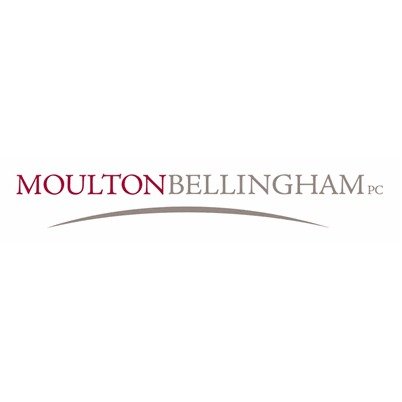Best Banking & Finance Lawyers in Billings
Share your needs with us, get contacted by law firms.
Free. Takes 2 min.
List of the best lawyers in Billings, United States
United States Banking & Finance Legal Articles
Browse our 1 legal article about Banking & Finance in United States written by expert lawyers.
- United States Student Loan Repayment 2026: Post-SAVE Options
- By 2026, most federal borrowers will be in long-term repayment with interest fully accruing again, and several "temporary" relief rules are set to expire. If legal or political attacks weaken SAVE, the original Income-Based Repayment (IBR) plan is likely the most durable, legally grounded income-driven repayment (IDR) option still available.... Read more →
About Banking & Finance Law in Billings, United States
Banking and finance law in Billings, United States governs the legal aspects of financial transactions, banking activities, and the regulation of financial institutions. These laws ensure the integrity and stability of the banking and finance industry, protect consumers, and facilitate economic growth. Understanding the legal framework is crucial for individuals and businesses involved in banking and financial matters in Billings.
Why You May Need a Lawyer
Engaging a lawyer specializing in banking and finance law in Billings can be beneficial in various situations. Some common reasons people seek legal help are:
- Bankruptcy and debt-related issues
- Negotiating loan agreements or reviewing financial contracts
- Handling disputes with financial institutions or lenders
- Compliance and regulatory matters
- Foreclosure proceedings
Local Laws Overview
Here are some key aspects of local laws relevant to Banking & Finance in Billings, United States:
- The Montana Uniform Commercial Code (UCC) governs transactions such as loans and security interests.
- The Consumer Protection Act provides safeguards against unfair banking practices and protects consumer rights.
- Banking institutions are regulated by federal agencies such as the Office of the Comptroller of the Currency (OCC), the Federal Reserve System, and the Consumer Financial Protection Bureau (CFPB).
- State and federal laws regulate mortgage lending and foreclosure processes.
Frequently Asked Questions
1. Can I dispute a charge on my credit card?
Yes, you have the right to dispute unauthorized charges or errors on your credit card statement. Contact your credit card issuer immediately to initiate the dispute resolution process.
2. What should I do if I'm facing foreclosure on my home?
If you're facing foreclosure, it's advisable to consult with a lawyer specializing in foreclosure defense. They can guide you through the legal options available, such as loan modification, short sales, or defending against foreclosure proceedings.
3. What laws protect consumers from unfair banking practices?
The Consumer Protection Act provides safeguards against unfair and deceptive banking practices. If you believe you have been a victim of such practices, consult with a lawyer who can assess your situation and advise you on potential legal remedies.
4. What are the consequences of bankruptcy?
Bankruptcy can help individuals or businesses eliminate or repay their debts under the protection of the court. The consequences vary depending on the type of bankruptcy filed, but they may include the liquidation of assets or the restructuring of debt repayment plans.
5. How can I ensure compliance with financial regulations?
Compliance with financial regulations can be complex. It's recommended to consult with a lawyer who specializes in banking and finance law. They can assist you in understanding and navigating the applicable regulations and ensure your business operates within the legal boundaries.
Additional Resources
- Federal Deposit Insurance Corporation (FDIC) - A government agency that provides deposit insurance and promotes the stability of the financial system.
- Consumer Financial Protection Bureau (CFPB) - A federal agency that protects consumers in the financial marketplace and provides resources on banking and finance issues.
- Montana Division of Banking and Financial Institutions - The state regulatory authority responsible for overseeing and regulating financial institutions operating in Montana.
Next Steps
If you require legal assistance in banking and finance matters in Billings, follow these steps:
- Identify your specific legal issue related to banking and finance.
- Research and select an attorney specializing in banking and finance law in Billings.
- Contact the attorney to schedule a consultation to discuss your situation.
- Prepare relevant documents and information for the consultation.
- During the consultation, explain your concerns and goals to the attorney and seek their advice on your options and potential legal strategies.
- If you decide to proceed with legal representation, work with the attorney to develop a plan of action.
Lawzana helps you find the best lawyers and law firms in Billings through a curated and pre-screened list of qualified legal professionals. Our platform offers rankings and detailed profiles of attorneys and law firms, allowing you to compare based on practice areas, including Banking & Finance, experience, and client feedback.
Each profile includes a description of the firm's areas of practice, client reviews, team members and partners, year of establishment, spoken languages, office locations, contact information, social media presence, and any published articles or resources. Most firms on our platform speak English and are experienced in both local and international legal matters.
Get a quote from top-rated law firms in Billings, United States — quickly, securely, and without unnecessary hassle.
Disclaimer:
The information provided on this page is for general informational purposes only and does not constitute legal advice. While we strive to ensure the accuracy and relevance of the content, legal information may change over time, and interpretations of the law can vary. You should always consult with a qualified legal professional for advice specific to your situation.
We disclaim all liability for actions taken or not taken based on the content of this page. If you believe any information is incorrect or outdated, please contact us, and we will review and update it where appropriate.
Browse banking & finance law firms by service in Billings, United States
Billings, United States Attorneys in related practice areas.









